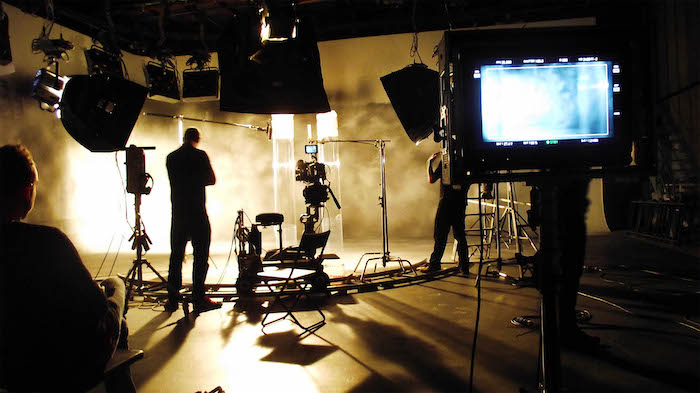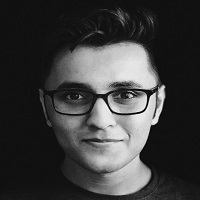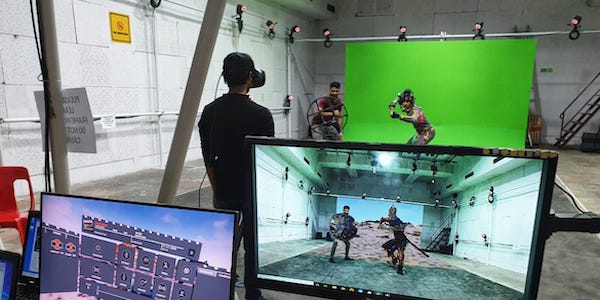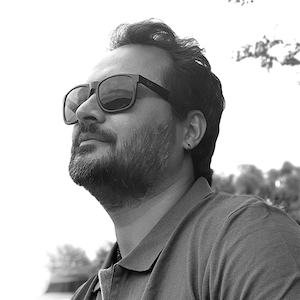The Covid-19 wrecking ball hit the planet hard, jolting economies and disrupting the traditional ways of conducting business across the world. With social distancing norms, precautionary measures and strict guidelines put in place to prevent the outbreak, film productions and live shoots have been affected enormously.

By proxy, the ecosystem’s crucial chamber; the VFX industry also initially floundered on its feet during the lockdown phase owing to its own struggles with the pending operations. However the industry managed to navigate remote workstations, nuanced pipelines and workflows in an astonishingly short amount of time.
Necessity being the mother of invention, forced the industry to quickly create innovative technologies and workarounds to soldier on despite the constraints triggered by the pandemic. Co-ordination was ensured through live conferencing applications like Zoom and Hangouts while cloud services, high-speed internet along with remote workstations zipped to their rescue during the nationwide shutdown.
As the content industry gears up to regain momentum with the resumption of the previously halted big-ticket movies like Batman, Mission Impossible 7 and Avatar 2, cinema world is beginning to evolve and adapt to newer mechanisms to continue working on their projects.
Now more than ever, filmmakers are training their eyes on the VFX and virtual production technologies to facilitate the filming process in a bid to minimise the number of people on the sets and efficiently plan their projects ahead of time from their homes.

Surmising the ways in which filmmakers will approach projects, Victor Tango Productions founder and director Vaibhav Modi shares: “Federations and unions are also working on drawing out the protocol for sanitisation and hygiene. Indeed, there will be a lot of green screen shoots and technologies that will emerge and grow faster to enable shooting without too many people crowding at one place. Usually, not only non-fiction but even on fiction shoots or the shows involving VFX and action are shot, the actual number of people is very high. So we would all have to get used to multi-tasking and breaking down the production process in such a manner that not many people have to come together at one place”
A representative of Ajay Devgn owned NYVFXWAALA studio shared that ‘filmmakers are writing their scripts bearing green-screens and visual effects work in mind in the current times’
Given the rising Covid-19 cases, filmmakers who were previously agnostic about the potential of special effects and pre-visualisation technologies are now beginning to adopt them lickety-split in large number. Even before the lockdown, Disney’s live action Lion King was seen by Jon Favreau even before making it with the help of virtual production, illustrating the myriad possibilities filmmakers can tap into.

Crowd simulation, face and body replacements, green-screen compositing and digital FX all facilitate the goal of minimising the physical crew sizes and scenes. Explaining the wonders of virtual production technology that filmmakers can leverage in the Covid-19 times, Centroid Indian Director Parth Shah opines: “One benefit of Virtual Production(VP) along with Performance Capture (PCap) is that it helps you shoot with a Digital Double of a CG Character along with a real actor in a virtual environment (LED Stage or Realtime Compositing on Chroma Stage), thus lowering the risk of involving multiple actors and their support staff on the set”
During the lockdown, VFX Studios and Filmmakers have leveraged the time to plan Previs and TechVis for their project. Over the years, Centroid India has been providing realtime previs of character animation in a CG environment, helping production houses to plan complex scenes remotely.

He adds: “You can also MoCap (Motion Capture) a single actor and replicate his animation to create crowd scene, which helps you to reduce secondary characters on the shoot floor. We provide services like VR Scouting which lets you do virtual recee of a location without physically traveling to the location”

With great technologies, come great budgets. Although the scenario indicates that the quantum of visual effects work will increase in the days ahead, philmCGI founder & director Arpan Gaglani offered a more nuanced take. On the question of whether chroma shoots can be the tangible solution, he shares, “There’s no straight answer for this as its very intuitive to think that VFX will be the solution. Every project has its own set of complications and maybe a few sequences can be achieved. But to entirely shift to chroma and crowd replacements, the visual language, story and budgets have to support it”
The prospects for the VFX industry look bright as the content pipelines gear up to adapt to the newer methods. In the coming days, the paradigm shift in the content world will be interesting to behold.
